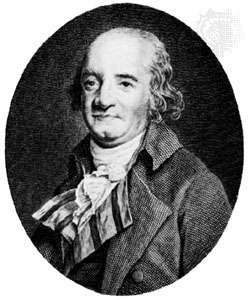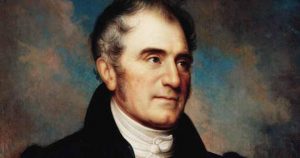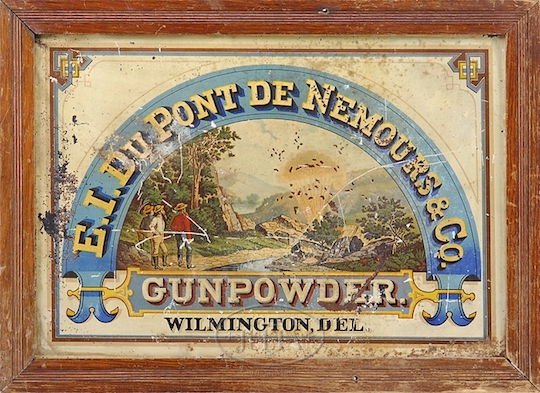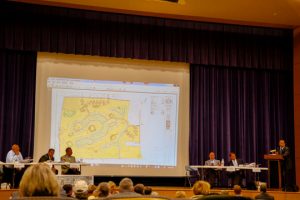No single family had as much influence on America and the development of its economic system as the du Ponts. The patriarch of what became known as the du Pont dynasty was Pierre Samuel du Pont. Serving in the French government as Inspector General of Commerce, he assisted in crafting the Treaty of Paris which ended the American Revolution. Du Pont’s son Eleuthere Irenee studied chemistry- specifically the production of gunpowder- with Antoine Lavoisier, considered the father of modern chemistry- and later used his skills to form what would become one of the most successful American corporations. Over more than two centuries, members of the du Pont family have been inventors, philanthropists, United States Senators, businessmen, entrepreneurs and influential power brokers on the global stage. Their story, in many ways, is proof that dedication and ingenuity can benefit and transform a nation- and the entire world.

Born on Dec. 14, 1739, in Paris, Pierre Samuel du Pont was the son of a watchmaker. He later became friends with many persons in positions of authority in the French government, including the personal physician to King Louis XV’s mistress. Du Pont was intensely interested in the workings of government and the economy. In 1768 he wrote a manuscript advocating free trade and low tariffs among nations, a work which later influenced Adam Smith in his book “The Wealth of Nations.”
The du Pont family saw its share of crises. As defenders of King Louis XVI and Marie Antoinette when they were attacked by an angry mob at the Tuileries Palace in 1792, Pierre was imprisoned and sentenced to be guillotined but was spared when the notorious ringleader Robespierre himself died. Pierre had established a publishing business in Paris, but the tumult and chaos of the times took their toll. In September 1797, Pierre and his son Eleuthere were both imprisoned as their home was ransacked and printing presses destroyed by angry mobs. Pierre recognized that the situation in France was spiraling out of control, so by 1799, he decided to move the family to America in hopes of greater safety and political freedom.
Before most of the du Pont family arrived in America, one of them had already served as a diplomat to the struggling republic. Pierre’s older son Victor had worked with the French minister to the United States for four years in New York and Philadelphia. Victor returned to Paris in 1793, married and soon sailed back to the U.S., serving as French Consul at Charleston, South Carolina, later again serving in that position in Philadelphia. When the family arrived in Newport, Rhode Island on January 1, 1800, Pierre had several ideas for possible business ventures. None of them included gunpowder. Younger son Eleuthere would soon have a fateful encounter which set the future course not only for the du Pont family, but American industrial enterprise.
Eleuthere Irenee du Pont retained valuable technical information from his years training with Lavoisier in France, who himself subsequently lost his life to the guillotine from which E.I.’s father was spared. Family legend has it that in 1800, Eleuthere took a hunting trip with Major Louis de Tousard, a former French artillery officer then working for the United States Army. On this trip, E.I. stumbled upon the idea which transformed his life and that of the nation. Reportedly E.I.’s gun misfired as he tried to shoot a bird, causing him to reflect on the poor quality of powder in his weapon. Du Pont queried Tousard about the gunpowder being used, asking to tour a local plant where it was produced. That plant was likely the one at Frankford, Pennsylvania, run by William Lane and Stephen Decatur, son of the famous military hero. After inspecting the goods produced at the plant. Du Pont wrote:

“To give an idea of the incompetence of these manufacturers, we will take as an example that plant which has the best reputation… now working for the Government… They grain their powder by crushing it in a wooden sieve… so badly arranged that the greater part is reduced to dust…”
E.I. du Pont learned that most of the gunpowder available in America was of poor quality compared to that produced in France. He saw an opportunity and he pursued it, soon scouting possible sites for a gunpowder mill. As the du Pont family already had political connections in America, they contacted people who had experience in both government and legal matters. One of them was Alexander Hamilton, who advised Pierre to be cautious in making any bids for property in America for two reasons: 1) land prices had become very expensive and 2) foreign nationals were prohibited from owning property in most states. Hamilton offered to contact James Bayard, a politician in Delaware to petition the Delaware state Assembly for a special exception to allow the family to purchase land there for a mill. Hamilton had experience with mills as co-founder of the Society for Establishing Useful Manufactures which created America’s first government-sponsored industrial city: Paterson, New Jersey, located at the Great Falls of the Passaic River. The du Ponts eventually chose a site on the Brandywine River near Wilmington due to its attractive location near a seaport and the strength of the water power, which supported successful mills upstream. The transaction was facilitated by a friend of the family, a naturalized citizen who helped get the business started.
In 1801 the du Ponts closed the deal for $6,740 with Jacob Broom for a site which became the foundation for their business in America. This occurred at a very auspicious time. America was in dire need of manufacturing facilities and many of the Founding Fathers, including George Washington, Thomas Jefferson and Alexander Hamilton welcomed the opportunity to end their dependence on imports from England and other countries. Thus began the Du Pont Company, incorporated as E.I. du Pont de Nemours, which would grow into one of the largest and most influential corporations on Earth.
About Gene Pisasale
Gene Pisasale is an historian, author and lecturer based in Kennett Square, Pa. His eight books and historic lecture series focus on the history of the mid-Atlantic region. Gene’s latest book is Alexander Hamilton: Architect of the American Financial System, which delves into the life and many accomplishments of this important Founding Father who almost single-handedly transformed our nation from a bankrupt entity into the most successful country in the history of mankind. Gene’s books are available on www.Amazon.com. His website is www.GenePisasale.com; he can be reached at Gene@GenePisasale.com.




Comments